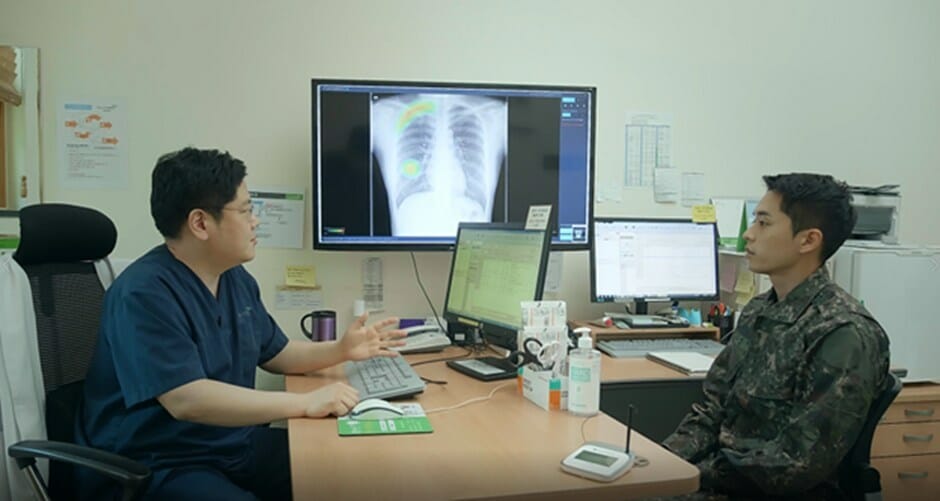Lunit, a leading medical AI provider, today announced a supply agreement with the Korean National IT Industry Promotion Agency (NIPA) as part of the government’s $27 million ‘armed forces medical system AI transformation’ project. Following the deal, Lunit will deliver Lunit INSIGHT CXR, a CE-marked AI software that detects abnormalities via chest x-ray, to Korean military medical institutions and provide advanced medical services to the armed forces.
By the end of this year, Lunit INSIGHT CXR will be deployed at more than 30 division’s medical sites across the Korean army, air force and navy. The software will support medical forces by detecting 9 types of chest abnormalities and screening tuberculosis.
As the solution was trained with a vast amount of medical data provided by the Korean Ministry of National Defense, it offers a military-optimized service, especially in diagnosing tuberculosis, pneumonia, pneumothorax, pleural effusion, and lung cancer, 5 of the most common chest findings in the military.
“Lunit INSIGHT CXR can bring value to diagnosis processes in a military environment where there is high vulnerability to mass infection, especially like tuberculosis, but lacking diagnostic specialists,” said Brandon Suh, CEO of Lunit. “Our powerful AI solution enables fast and accurate screening, providing better medical service for soldiers. We hope that this joint project with the government can innovate and build a more robust and sustainable medical system.”
The deployment was decided based on a testing period in military bases and recommendations from renowned organizations. In 2021, Lunit delivered its software to 13 military medical facilities, including the Korean Armed Forces Capital Hospital and Yeonpyeong Marine Base. The validation proved that Lunit INSIGHT CXR can enormously assist specialists in a military environment with its high accuracy and practical efficacy. The product also verified its unrivaled performance by detecting tuberculosis with 0.97-0.98 AUROC (Area under the receiver operating characteristic curves) during the assessment conducted at the Asan Medical Center, one of the most trusted hospitals in Korea.
In addition, in March 2021, Lunit INSIGHT CXR was recommended by the WHO (World Health Organization) Consolidated Guidelines on Tuberculosis[1] as one of the computer-aided detection (CAD) software that can be used in place of human readers for TB screening in populations aged 15 years and older. The recommendation came after conducting two parallel studies by the most reliable international organizations in tuberculosis research, the Foundation for Innovative New Diagnostics (FIND) and the International Organization for Migration (IOM). In both studies, Lunit INSIGHT CXR showed the highest AUC (Area Under the Curve) scores among three CAD systems when the diagnostic performance was analyzed against microbiological reference standard (MRS). [2] [3]
Based on the corroborated value, Lunit plans to expand the reach of its solution, paving the way to install its AI product in more military medical sites across the country and drive the transformation of the system.
[1] https://apps.who.int/iris/bitstream/handle/10665/340255/9789240022676-eng.pdf
[2] Sandra.k, et al., A study from FIND, preprint at medrxiv. 2022, available at https://www.medrxiv.org/content/10.1101/2022.01.24.22269730v1
[3] Sandra.k, et al., A study from IOM, preprint at medrxiv. 2022, available at https://www.medrxiv.org/content/10.1101/2022.03.30.22273191v1
